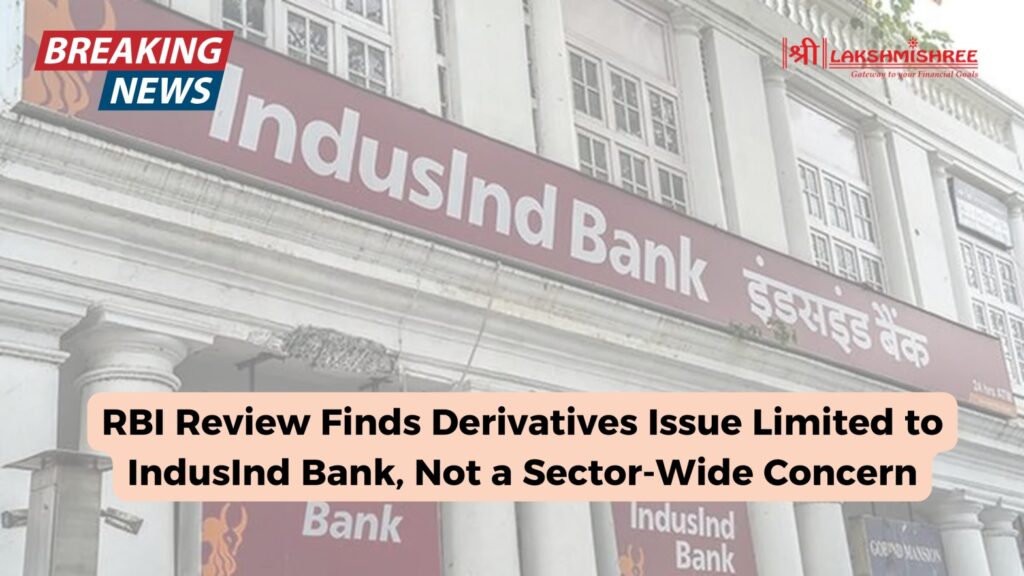A recent Reserve Bank of India (RBI) review of banks’ derivatives positions has found that the accounting issue is specific to IndusInd Bank and not an industry-wide problem, according to sources quoted by Moneycontrol on March 19.
While the banking regulator did not find discrepancies in most banks, some private sector lenders have been asked to submit data on their derivatives transactions, sources said.
The RBI review centered on the management of derivatives portfolios by banks on their foreign deposits. Large private banks with significant foreign deposits had to provide more information on their derivatives holdings.
This follows the announcement by IndusInd Bank on March 10, when a possible 2.35% impact on its net value, which was at about ₹62,000 crore as on March 31, 2024, was discovered through an internal audit.
The RBI ordered this review in the aftermath of the new guidelines on the classification and valuation of investment portfolios released in September 2023. The new RBI Master Direction requires the banks to divide their derivatives portfolio into three levels (Level 1, Level 2, and Level 3) and disclose the same in the financial statements.
Banks cannot pay dividends on unrealized profits on Level 3 derivatives under the new standards, and the profits must be deducted from CET 1 capital. The reason behind these regulations is to make the corporate bond market more transparent, improve the risk management, and compel the banks to implement proper hedging techniques.
Do you have a news tip for Lakshmishree reporters? Please email us at media@lakshmishree.com.
Source: Moneycontrol.

News Desk



